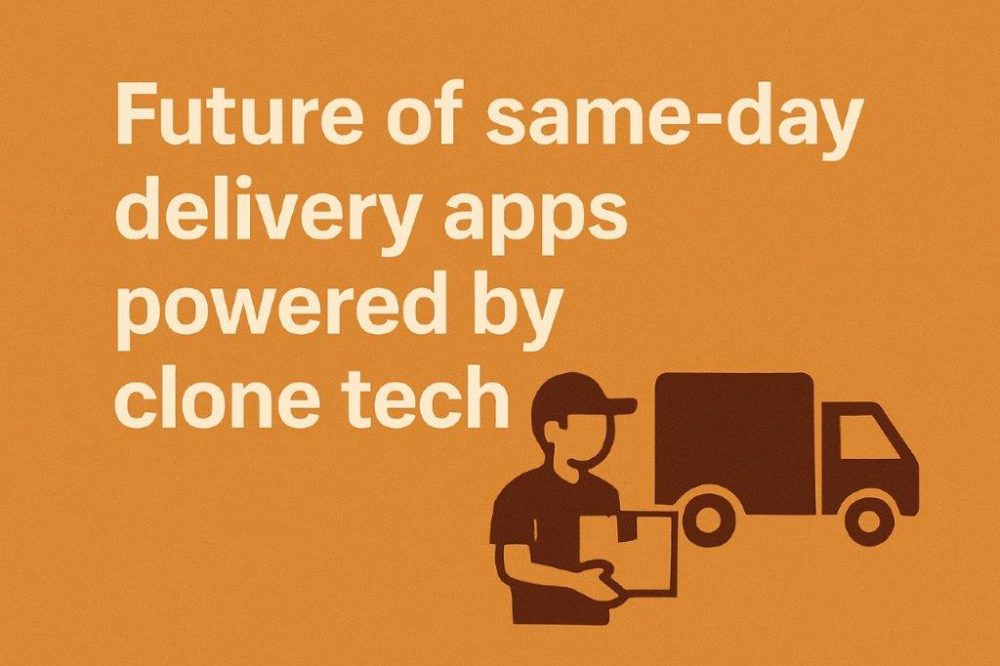The modern consumer is mostly defined by a demand for instant gratification, making same-day delivery an important aspect for e-commerce as well as logistics companies. Same-day delivery was once a niche luxury; however, it is quickly becoming an industry standard in modern era. This transformation is being increasingly fueled by a concept broadly termed “clone tech”, which is a combination of advanced AI, ready-made or customizable software platforms, along with automation technologies that are designed for replicating as well as instantly deploying highly efficient operational models of industry leaders. This article explains how this ‘clone tech,’ particularly through AI-driven software along with rapid deployment of proven logistical frameworks, is shaping the future of same-day delivery, in turn making speed as well as efficiency accessible to businesses of all sizes.
The Rise of the Operational Template
The term clone tech, in this context, mostly refers to advanced, off-the-shelf or white-label applications as well as delivery management systems. These solutions play an important role in allowing new or existing businesses to quickly launch a same-day service, essentially cloning the best practices, user experience (UX), as well as key features of successful on-demand platforms, like rapid sign-up, real-time tracking, as well as multi-payment options.
The key differentiator is the underlying technological advancement. These are not just copied apps, rather they are platforms which are embedded with advanced technologies like artificial intelligence (AI) and machine learning (ML). This combined intelligence is what truly drives the logistics to a same-day standard. AI algorithms play an essential role in dynamic route optimization by constantly evaluating real-time data on traffic, weather, as well as delivery vehicle capacity for calculating the fastest and most cost-effective path. This helps in decreasing travel time as well as considerably lowering fuel consumption and even operational costs, which were traditional barriers to same-day delivery profitability.
Technological Pillars of Instant Logistics
The next generation of same-day delivery is driven by three primary technological, aiming to enhance clone tech platforms:
1. Micro-Fulfillment Centers and Inventory Logic:
AI allows businesses to shift from centralized warehouse management to integrating micro-fulfillment centers (MFCs) or using existing local store inventory as fulfillment hubs for reducing the time for delivery. Also, clone apps utilize AI to determine the optimal location for every order in real-time, thereby ensuring inventory is always allocated from the closest hub.
2. Predictive Demand and Resource Allocation:
The same day delivery services require a perfect balance of supply and demand as well as AI-driven predictive analytics is driving the growth of services. Moreover, AI-driven predictive analytics is a core function in modern delivery platforms, which analyzes older data, weather patterns and others to predict demand. This enables automated shipping tools to allocate drivers, vehicles, or autonomous robots such as drones and delivery robots, to hub before an orders is placed, to ensure instant delivery.
3. Autonomous and Sustainable Delivery:
The autonomous and sustainable delivery services is growing rapidly as well as advancement in same-day delivery platforms are being designed to integrate with emerging technologies. Also, the technologies such as electric vehicle (EV) for sustainable urban deliveries, drone technology for avoiding urban congestion is driving the growth of autonomous and sustainable delivery services. The clone tech template acts as the central brain, for organizing couriers, EV delivery bikes, as well as autonomous bots for seamless logistics network.
Conclusion
The future of same-day delivery apps is powered by operational efficiency and intelligence of clone tech platforms, which is focused on democratization. These advanced logistical frameworks are growing, which in turn is allowing smaller retailers to compete with e-commerce giants as well as transform consumer expectations across the board. Additionally, the expansion of delivery services will be defined by intelligent, adaptive, and automated logistics networks.
